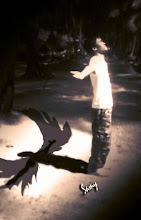
Scientists that study the development of languages managed to identify some of the oldest words that are still used today in English.
Some words today suffered very little change; in fact these words would have been understood even by ancient hunter-gatherers. The oldest English and Indo-European words discovered include: 'I', 'we', 'two' and 'thou'.
In addition, scientists mentioned that they discovered a number of words that would die out in about 1,000 years due to the fact that they would later evolve into other forms. These words are: 'throw', 'stick', 'dirty', 'guts' and 'squeeze'.
The lead researcher Mark Pagel, of the University of Reading, mentioned that it would be possible to make an elementary "time traveler's phrasebook", which would include words that even Stone Age cavemen could understand.
"If a time traveller wanted to go back in time to a specific date, we could probably draw up a little phrasebook of the modern words that are likely to have sounded similar back then," the scientists told The Times. Among other words that survived through centuries are 'two', 'three' and 'five'.
Using his computer, Dr Pagel compared languages that are part of the Indo-European family and managed to track the history of words' evolution. It is worth noting that the Indo-European family of languages includes the past and present languages spoken in Europe, the Middle East and the Indian sub-continent.
The scientists said that some of the oldest words are at least 10,000 years old, despite the fact that the original Indo-European language is considered to have not more than 9,000 years.
"If you look at 'thou', 'I' and 'who', we can now tell they are probably at least 15,000 to 20,000 years old. The sounds used then for these meanings were probably very similar to those used today," said Pagel, whose work demonstrated that the rate at which words developed is directly linked to the way they are used.
The least changes occurred in the numerals, followed by pronouns. He found that nouns registered a slower evolution than verbs, which in their turn evolved slower than adjectives. The most often used words suffered less changes compared to words used seldom.
Thus the words 'I', 'Who', 'We', 'Thou', 'Two', 'Three' and 'Five' registered little change. Words that will most like disappear due to their rapid evolution are: 'dirty', 'squeeze', 'bad', 'because', 'guts', 'push' (verb), 'smell' (verb), 'stab', 'stick' (noun), 'turn' (verb), 'wipe'.
http://www.infoniac.com/science/scientists-identified-old-words-used-today.html
Saturday, February 28, 2009
Scientists Identified 10,000-Years-old Words Used Today
Posted by apple1 at 8:55 PM
Subscribe to:
Post Comments (Atom)




0 comments:
Post a Comment